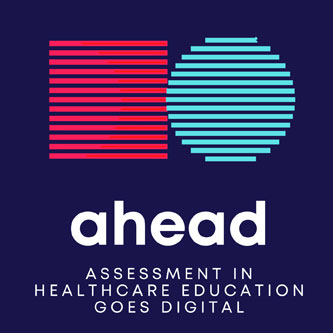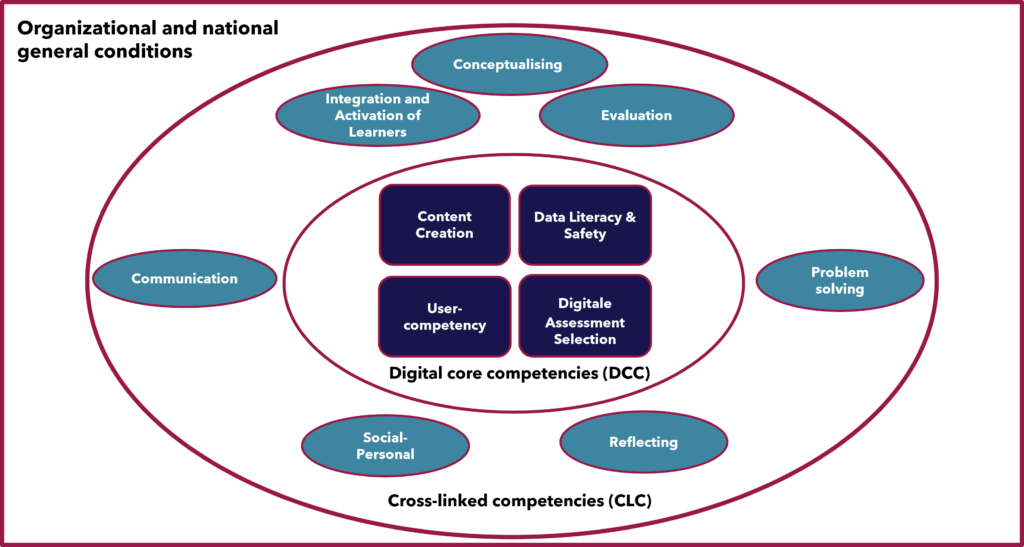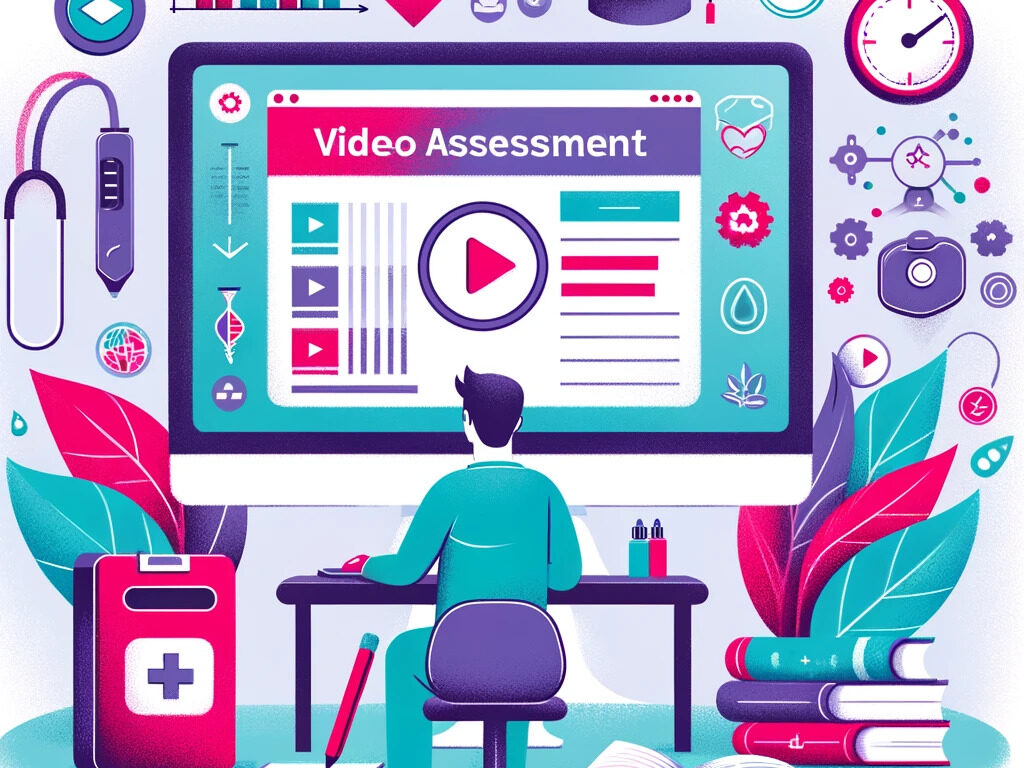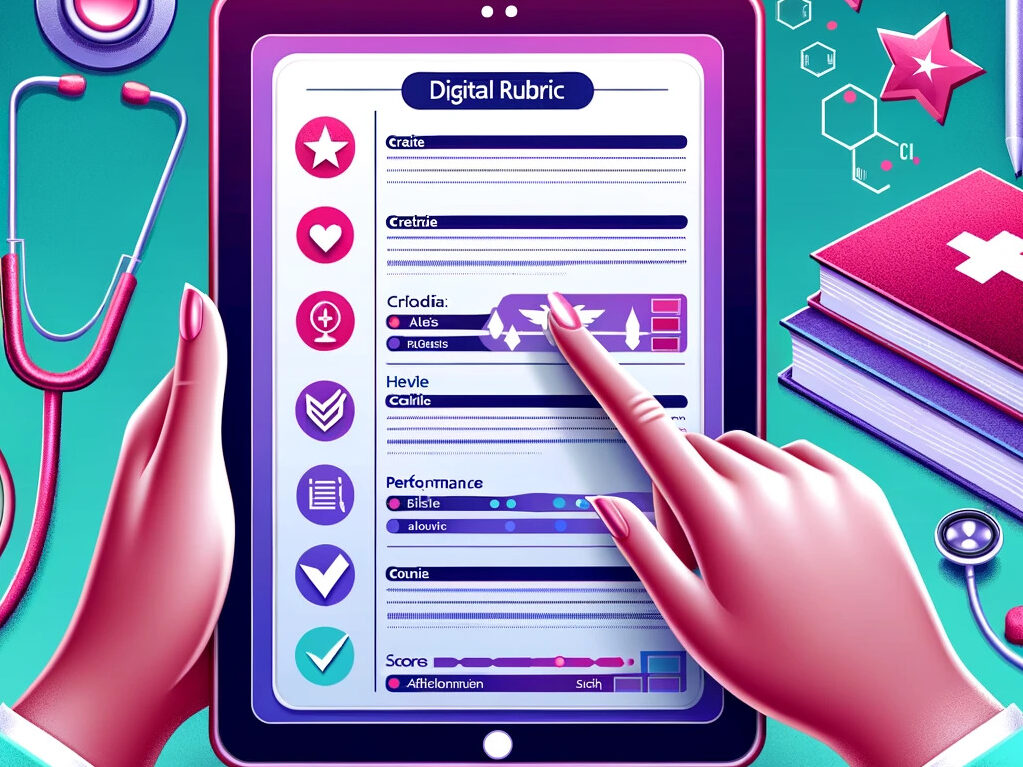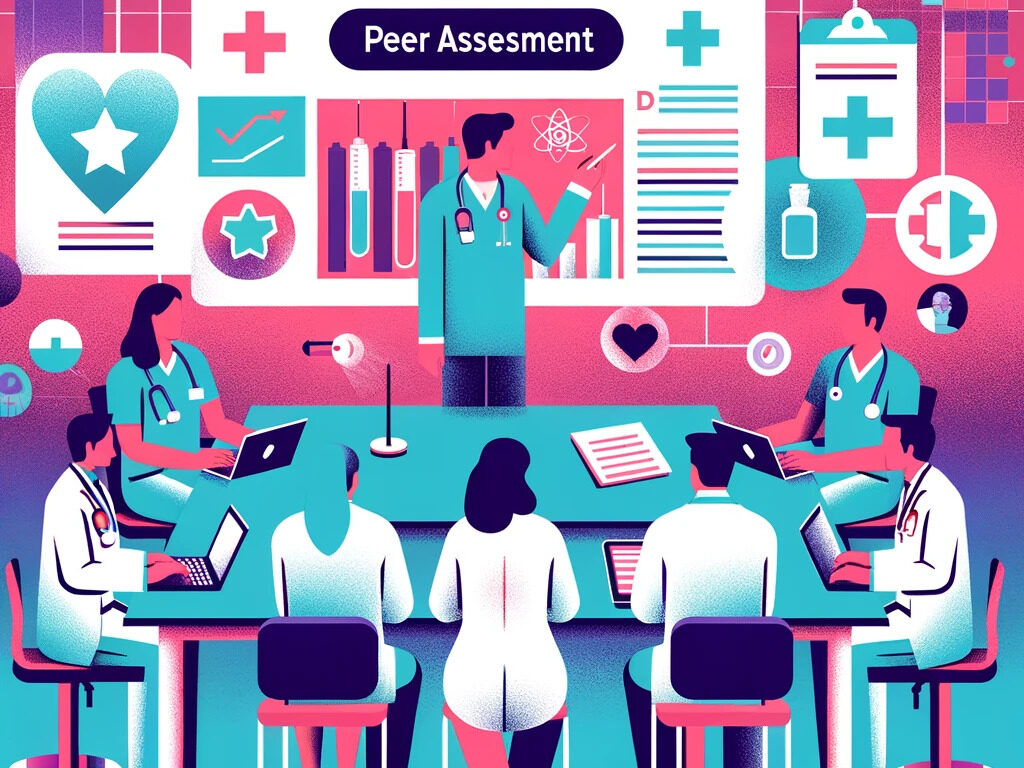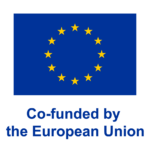On the Project AHEAD and the use of digital assessments in the teaching of healthcare professionals
The Erasmus+ funded project AHEAD KA220-VET-000034699 started on 01.11.2021 in cooperation with partner organisations in Ireland, Poland, Germany and Georgia. The aim is to harness the potential of digitalisation for the teaching of health professions, also through the use of digital examination formats.
Due to the Corona pandemic, teachers in Europe and worldwide are faced with the challenge that teaching and examinations cannot always take place in presence. It also complicates the essential cooperation between theoretical and practical learning locations. Digital examination formats are a suitable way to meet this challenge. Independently of this, they also offer important potential for improving teaching in the long term. In order to make use of this potential, international cooperation is working on providing teachers with the necessary resources and supporting them in acquiring the necessary competences for the planned and responsible use of digital forms of examination.
DigATaL – Framework
We have developed a competence framework by systematically exploring the requirements of different assessment scenarios and comparing them with different existing more general competence frameworks such as DigComp and DigCompEdu. In the middle are the four core competences for the use of digital assessments. Surrounded by the 7 cross-linked competencies. These are also necessary or helpful, but are not digital competences in the strict sense. Everything is then surrounded by the individual conditions of the organisation or country, which have an influence on whether these competences can also be applied.
Assessments
In one of our pivotal project components, we have designed a series of digital assessments that are set to revolutionize the examination processes within nursing education. Our tools offer a forward-thinking, technology-based approach to gauge student understanding and mastery of the various competencies required in the nursing profession.
Whether you’re aiming to test clinical skills, communication abilities, or decision-making under pressure, our digital assessments provide an efficient, reliable, and real-time platform for evaluation. Developed with great precision, these assessments balance technological sophistication with user-friendliness. This ensures that everyone involved in the examination process, regardless of their technological expertise, can fully engage with and benefit from these tools.
Accessible across multiple devices and platforms, our assessments offer the flexibility necessary for modern educational environments. This enables both educators and students to efficiently administer, undertake, and review examinations, thus optimizing the overall evaluation process.
For the following assessments, we have made a rough assessment of the degree of requirement using a star scale. This is based on the mixture of the requirement for the use of technology, the necessary abstraction and the complexity. Depending on the application, however, all assessments can have a different level of requirements. The assessment made here is therefore only intended to provide a rough guide.

The following assessments were assigned to the different competence levels, depending on the degree of complexity when they were created.
Data protection
Data protection is of paramount importance in the digital educational environment in Europe, especially with the use of digital assessments. Protecting personal data is not only a matter of privacy and security but also a legal requirement. In Europe, the General Data Protection Regulation (GDPR) sets the central standard for handling personal data. It ensures a uniform level of data protection within the EU, while national data protection laws can impose additional requirements. These legal frameworks highlight the need for a conscious and responsible approach to data handling in education.
For educators and learners, this means exercising caution in the creation, implementation, and participation in digital assessments. Educators should ensure that the digital tools and platforms used comply with GDPR requirements. This includes verifying that data is transmitted in an encrypted form, stored appropriately, and retained only as long as necessary. Additionally, it is crucial for educators to provide transparency about the types of data collected, the purpose of collection, and how it is processed.
On the other hand, learners must understand what data is collected about them and how it is protected. They should be encouraged to review their own data protection settings and stay informed about their rights under the GDPR. Active participation in data protection training can help both educators and learners become more aware of the risks and learn how to minimize them.
In practice, this means educators need to consider data protection aspects when selecting digital assessments and inform learners about data protection practices. Learners, in turn, should proactively ask questions about data protection and critically assess the security of their data. By developing an awareness of data protection and acting accordingly, a secure and responsible approach to digital assessments in the European educational space can be promoted.
FAQ
Digital assessments are flexible, interactive and can be tailored to individual learning needs. They can be conducted anytime and anywhere and allow for automated assessment and feedback.
The technical requirements can vary depending on the type of assessment, but usually include access to appropriate devices (computers, tablets), a stable internet connection and the necessary software or platform.
Teachers need to ensure that personal data generated by digital assessments is kept secure and only used for its intended purpose. They should be aware of the privacy policies of the platforms used and ensure that they comply with legal requirements.
Digital assessments can be integrated into the regular teaching process by using them as homework, projects, presentations or tests. They can also be used in flexible learning environments such as distance learning or blended learning.
Both teachers and learners need to have basic digital competences, including navigating digital environments safely, creating and editing digital content, and critically evaluating online information.
Digital assessments allow teachers to address the individual learning needs of their students by offering different formats and levels of difficulty and allowing learners to express their competencies in different ways.
Rubrics are standardised assessment tools used to evaluate student performance in a systematic and consistent way. They provide a clear and structured framework for assessing student performance in various components.
Rubrics are created by defining the learning objectives that the digital assessment is intended to cover. These objectives are then broken down into specific criteria to be assessed. Each criterion is then rated on a scale, often ranging from ‘excellent’ to ‘poor.
